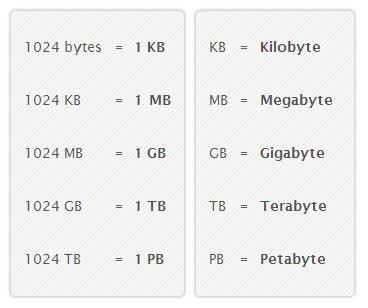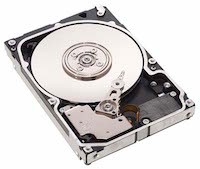
"Hard drive" is a common term used in the computer world for the component in computers and electronics that provides long-term storage of information. There are different sizes and kinds of hard drives, but they all essentially do the same thing.
The Hard Drive as Storage
As you use your computer, you create documents and other bits of information to be stored. The hard drive saves these items, alongside the software and files that allow you to easily use and interact with your computer, including the operating system.
When you open an application or document, your computer accesses it from the hard drive. Larger files or programs can take longer to access because the computer needs to retrieve the information from the hard drive before presenting it to you in a useable way.
Measuring Hard Drive Storage
Hard drives come in a variety of storage sizes. As of publication, hard drives are typically measured in gigabytes (GB) and terabytes (TB), which are units of measurement for a hard drive's storage capacity.
Hard drive storage conversion chart

For example, 500GB hard drives are common in many modern computers. The average 4-minute song on iTunes is approximately 4 megabytes (MB) in size. There are 1,000 megabytes in 1 gigabyte. This means that a computer with a 500GB hard drive could store 250,000 songs.
Tip
Due to the increasing popularity of streaming services and cloud storage, hard drive capacity is less of a concern to the average user purchasing a new computer. Streaming services, such as Spotify, allow users to access extremely large content libraries over WiFi or cellular data without taking up hard drive storage. Cloud storage allows users to store content securely and wirelessly, eliminating the need for large hard drives.
Drive Types
Standard Hard Disk Drive

A hard disk drive (HDD) consists of circular metal disc-shaped platters which store the computer's data. An actuator arm runs between the platters, reading data off of the hard drive. These platters constantly spin while the computer is on, almost like a vinyl record player. HDDs are the most common and inexpensive form of hard drive.
Solid State Drive

Unlike a hard disk drive, a solid state drive (SSD) has no moving parts and the data is stored on flash memory chips instead of metallic platters. SSD technology is faster than HDD and less prone to failure since there are no moving parts. Since SSDs are newer technology, they cost more per unit of storage than an HDD.
Warning
Defragmentation is the process of compiling files on a hard drive in the most efficient way to save storage space. It is a maintenance task that some may be used to performing on older computers, and it still may be worth running the defrag utility if you have an HHD. If you have an SSD, defragmenting the hard drive is unnecessary and may even decrease the life of the SSD.